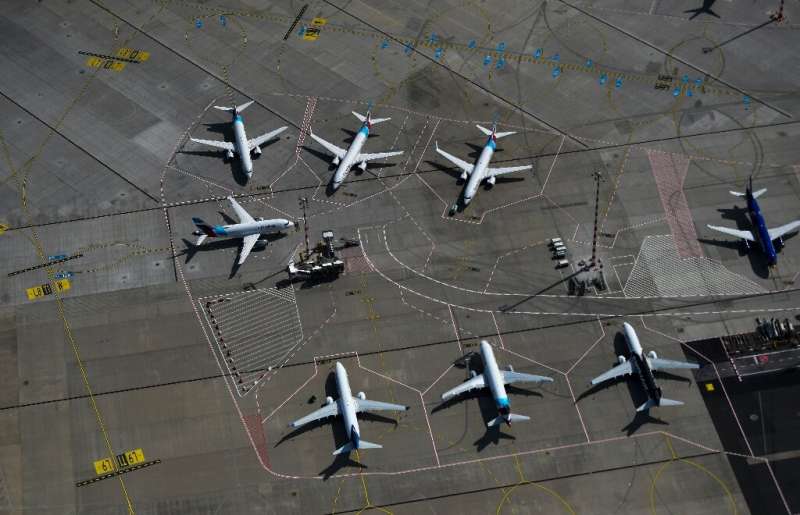'Reasonable' for some, 'a slap in the face' for others
The UN agency overseeing international aviation cut the COVID-hit industry some slack this week by modifying a landmark scheme to curb the sector's CO2 emissions.
The International Civil Aviation Organization (ICAO) voted overwhelmingly on Tuesday to change the baseline year used for calculating emissions under the 2016 deal, known as CORSIA.
Before the plan was modified, airlines agreed to cap future CO2 emissions starting next year at levels averaged across 2019 and 2020, or pay into offset schemes if those limits are exceeded.
International aviation emissions were about 70 percent higher last year than in 2005, and had been projected—before the coronavirus outbreak—to increase more than 300 percent by 2050, according to ICAO estimates.
But the pandemic has brought commercial aviation to a near standstill since early March.
That means exceptionally low CO2 emissions from commercial aviation in 2020 would also lower the threshold beyond which airlines would be forced to pay for offsets from next year.
As a result, ICAO said only 2019 will be used as a reference year.
"The value of 2019 emissions shall be used for 2020 emissions to avoid inappropriate economic burden on the aviation industry," ICAO said in a statement.
The agency left open the possibility that further "adjustments" could be made in the future.
Alexandre de Juniac, head the International Air Transport Association (IATA), the airline industry's trade group, described the revised rules as "reasonable".
Billions in bailouts
"First, it maintains the commitments that the airlines have made at the same level," he told journalists by phone.
"Second, they are reasonable because they point to an objective that is reachable in the long run."
The COVID-19 crisis will see airline passenger revenues drop by $314 billion in 2020, a 55 percent decline compared to 2019, IATA said in April.
Watchdog groups, however, reacted to the change with scepticism.
"CORSIA was already far below what it needed to avoid climate catastrophe," said the International Coalition for Sustainable Aviation, whose members include WWF, the Environmental Defense Fund, Carbon Market Watch and Brussels-based NGO Transport & Environment.
"The ICAO Council's decision to further deflate the ambition of CORSIA is a betrayal to future generations, and a slap in the face to the multilateral work to build the program," the group said in a statement.
The scaling down of ambition is happening despite the industry receiving billions of dollars in government bailouts, the civil society organisations noted.
Direct emissions from aviation account for more than two percent of global greenhouse gas emissions, according to the EU Commission for Energy, Climate Change and Environment.
If global aviation was a country, it would rank among the top 10 emitters.
© 2020 AFP
























